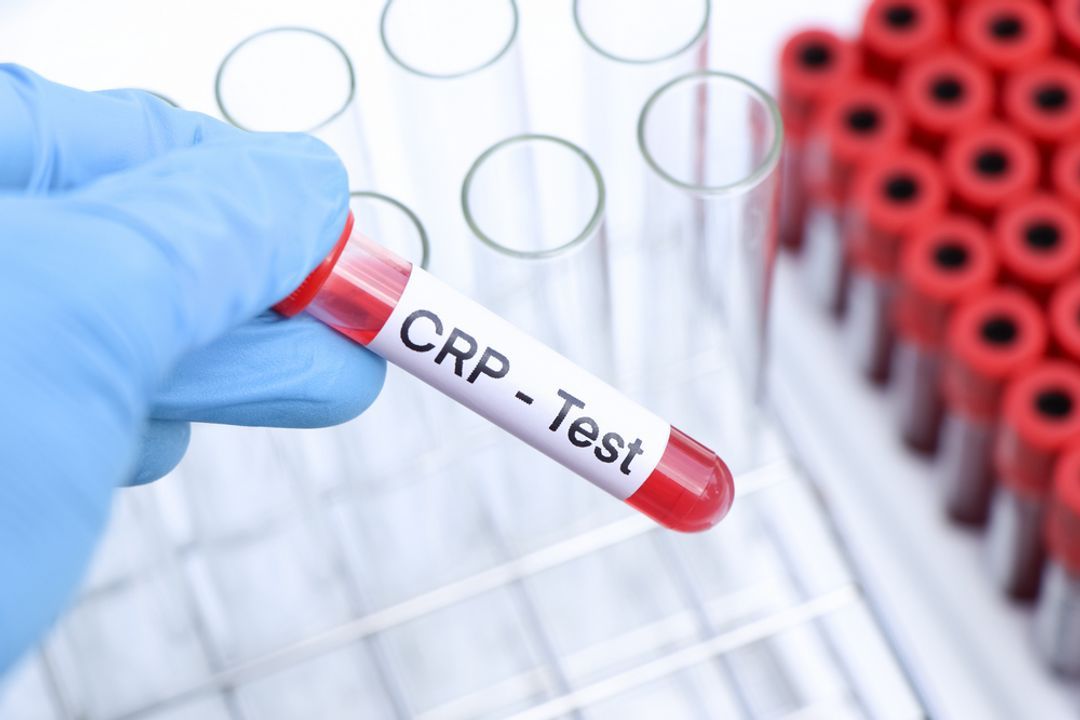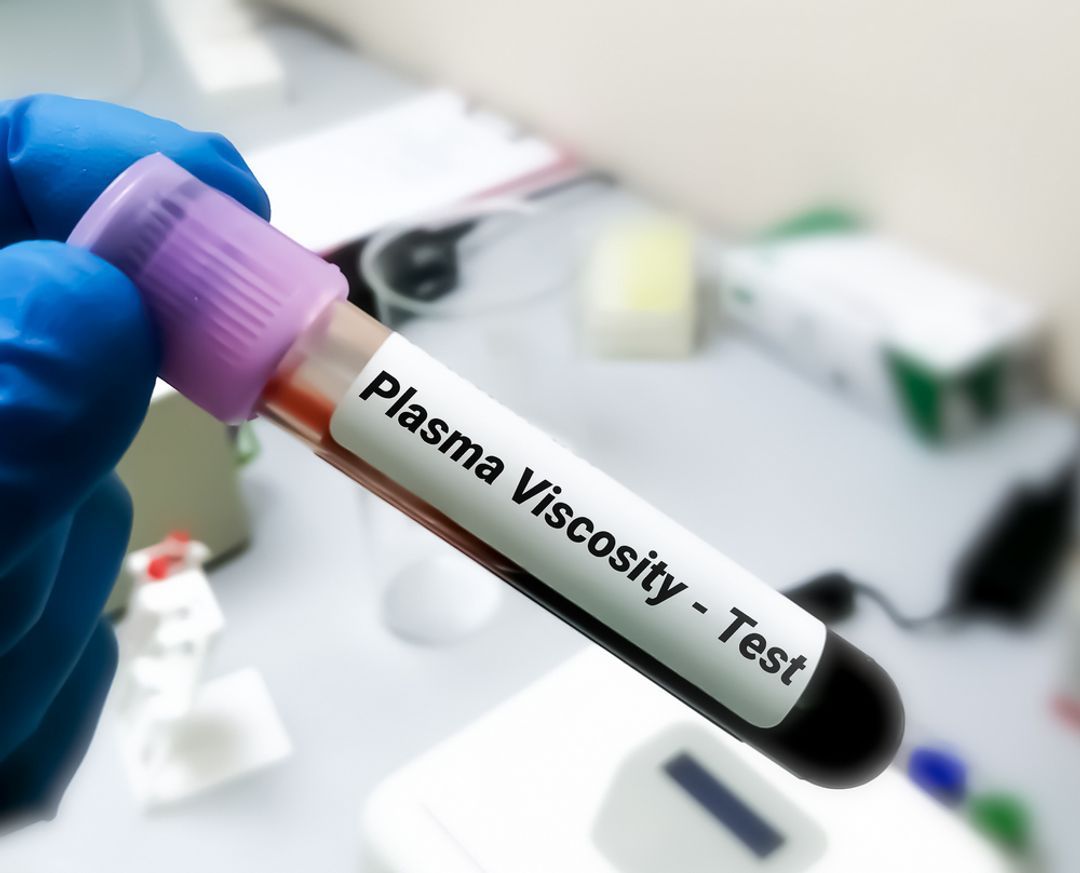A Comprehensive Overview of Blood Tests for Inflammatory Markers
What are inflammatory markers? What does it mean when your inflammatory markers are elevated? Discover the answers here.
Key Points
-
Inflammatory markers are indications of inflammation throughout the body.
-
Blood tests known as inflammatory markers are employed to detect specific indicators linked to inflammation. These indicators, also referred to as biomarkers, are an innate response of the body's immune system to infection, injury or toxicity.
-
While inflammatory marker tests can assist doctors in feeling more secure about not overlooking anything, they may, at times, give false positive results.
-
Collecting blood samples is a necessary procedure for conducting laboratory tests to measure inflammatory markers. On that note, the three most frequently employed markers are C-reactive protein (CRP), erythrocyte sedimentation rate (ESR) and plasma viscosity (PV).
-
The presence of a specific inflammatory marker alone is insufficient to diagnose a disease, as other indications and symptoms must also be taken into consideration.
Primary care physicians use inflammatory markers to aid in the diagnosis of particular illnesses or to monitor disease progression. Additionally, healthcare providers use these markers as a non-specific indicator to make a distinction between the presence or absence of an ailment when making diagnoses during cases of uncertainty.
Inflammatory Markers: Explained
When the body experiences injury or harm, such as trauma, surgery, infection, burns or cancer, inflammation is the natural response. During this process, certain proteins are released into the bloodstream. Should their concentration rise or fall by a minimum of 25%, they become systemic inflammatory markers.
Although numerous inflammatory markers, also known as acute phase reactants, exist, the most commonly measured in clinical practice include C-reactive protein (CRP), erythrocyte sedimentation rate (ESR) and plasma viscosity (PV). Nonetheless, since these markers are non-specific, the tests cannot definitively diagnose any individual medical disorder. However, when used alongside other tests, they might help identify a general inflammatory state and contribute to differential diagnosis.
Why Do Doctors Utilise Inflammatory Markers?
Inflammatory markers can be a valuable aid in the diagnosis or monitoring of inflammatory conditions, including particular types of arthritis like rheumatoid arthritis, polymyalgia rheumatica, temporal arteritis, autoimmune diseases such as systemic lupus erythematosus (SLE), inflammatory bowel disease as well as suspected infections. Elevated inflammatory markers can assist doctors in making a diagnosis when they suspect one of these conditions. For those already diagnosed, inflammatory marker blood tests could also be used to monitor the patient's response to treatment or to detect flare-ups.
At times, doctors utilise inflammatory markers as a non-specific test to exclude serious diseases. The problem, however, is if inflammatory marker tests are conducted without a clear indication, interpreting the results can sometimes be challenging.
The Applications of Inflammatory Markers in a Clinical Setting
Diagnosis
C-Reactive Protein (CRP) Test
C-reactive protein (CRP) levels can serve as an early and dependable indicator of active systemic inflammation. This is because CRP tests can distinguish between inflammatory and non-inflammatory conditions as well as indicate the gravity of the inflammation.
When identifying acute inflammation in patients with undiagnosed ailments, CRP tests are recommended over ESR tests due to their higher sensitivity and specificity. Typically, the normal range of CRP concentrations in the blood is between three and ten mg/L. However, in individuals with inflammatory conditions, the levels may increase by numerous hundredfold. Besides that, CRP is also valuable because its concentrations can shift rapidly within the first six to eight hours post-injury, reach its peak past 48 hours, and go back to its normal levels once the problem has been fixed.

Erythrocyte Sedimentation Rate (ESR) Test
The erythrocyte sedimentation rate (ESR) test determines the rate at which red blood cells settle to the bottom of a test tube. Increased levels of proteins in the blood due to inflammation or infection can cause the red blood cells to settle more quickly, resulting in a higher ESR.
Since the ESR is dependent on a range of proteins with different half-lives, its rate of increasing and decreasing is slower than that of CRP concentrations. On top of that, the normal ESR values are gender and age-specific; ESR rates elevate with age and are generally higher in women compared to men. Regardless of the clear advantages of CRP measurements over ESR values, the ESR test remains beneficial in the diagnosis of particular conditions, especially in cases of bone lesions and osteomyelitis.
Plasma Viscosity (PV) Test
Normal responses to infection or inflammation can increase protein levels in the blood, which can also result in a rise in plasma viscosity. On that note, plasma viscosity (PV) is a specialised test that is typically only accessible in larger, specialist laboratories. It gauges the thickness of the plasma, the fluid component of the blood, and is influenced by the number of proteins present. Given that abnormal production of proteins, known as "paraproteins", can increase plasma viscosity in specific diseases, assessing the viscosity of blood could be beneficial in identifying and tracking inflammation.
A rise in protein concentrations within the plasma component thickens the blood, leading to a higher plasma viscosity - the higher the result, the thicker the blood is. As a result, plasma viscosity may be employed as an indirect gauge of the degree of inflammation.
Thus, this test is used to aid in the diagnosis and monitoring of these inflammatory illnesses.

Disease Monitoring
After diagnosing a disease, physicians may use inflammatory marker tests to observe the inflammation progression.
CRP is a helpful marker for monitoring disease activity and response to treatment. For example, an individual suffering from rheumatoid arthritis may have laboratory testing done to measure C-reactive protein every three to six months to establish if treatment is effective.

Are There Standardised Values for Inflammatory Marker Levels?
There is a lack of standardisation and synchronisation in many tests, including those used to measure ESR and CRP levels. This means that there could be a considerable disparity in the findings. Therefore, the interpretation of results ought to be done with care, as otherwise it may lead to incorrect clinical decision-making and negatively impact the quality of patient care.
To safeguard consistency, it is strongly recommended that repeat testing is performed in the same laboratory.
What Does an Elevated Inflammatory Marker Level Indicate?
An inflammatory marker test result alone should never be used to direct medical decisions. While an abnormal result does indicate inflammation, it does not determine the root cause, which could range from a simple viral infection to a more severe condition such as cancer.
The ESR levels could also be influenced by a person's gender, age, smoking habits and anaemia. For instance, elevated inflammatory markers may also be present in individuals who are obese. In addition, it is essential to note that a normal inflammatory marker test result does not necessarily rule out illness. Taking a holistic approach to a patient's symptoms and thorough history taking are thus essential..
In case of certain diseases such as temporal arteritis, the presence of symptoms together with abnormally raised inflammatory markers are highly suggestive of the disease. For individuals with existing inflammatory disease, increasing inflammatory markers may indicate a flare-up or a poor response to treatment, while decreasing markers may indicate a positive response to treatment.
In the meantime, should the reason for an elevated inflammatory marker be unclear, further testing or repeating the test(s) in question may be necessary to uncover the original trigger.
How Can GlycanAge Play a Role in Inflammation Management?
Chronic inflammation can lead to an overactive immune response that accelerates the ageing process and increases the likelihood of age-related illnesses. The GlycanAge biological age test assesses the state of an individual’s health condition by evaluating the level of chronic inflammation in the body, which has an effect on the biological age of cells, tissues, and organs. This thereby permits individuals to make appropriate lifestyle alterations to alleviate inflammation and delay the entire ageing process.
The GlycanAge test is recommended for those starting their wellness journey to determine their biological age. Two tests over time can track progress and assess the effectiveness of lifestyle changes. Besides that, custom plans are available for biohackers and professional athletes who are serious about achieving a long-term health improvement.
All packages come with economical pricing plans and a complimentary consultation with a certified research and healthcare expert, both of which are happy to assist you with understanding the results and generating a customised health care plan to slow down your ageing process. If this all sounds like an awesome plan, take control of your health today by ordering your GlycanAge biological age test.
Concluding Thoughts
All in all, inflammation is a feature of numerous diseases. Assessing levels of inflammatory markers may support the diagnosis of certain presumed inflammatory conditions when interpreted alongside a patient's comprehensive clinical profile. With that in mind, CRP, ESR and PCT are broad, non-specific measures that can be helpful in particular circumstances.
Frequently Asked Questions (FAQs)
What are inflammatory markers?
Clinicians use inflammatory markers to evaluate a patient for the existence or lack of a current inflammatory ailment as well as the severity of a confirmed disease.
What are some examples of the most commonly used inflammatory markers?
C-reactive protein (CRP) and erythrocyte sedimentation rate (ESR) are the three most frequently employed inflammatory markers.
What may a heightened inflammatory marker suggest?
While atypical findings indicate inflammation, they do not pinpoint the underlying cause, which may range from a minor viral infection to a severe case of cancer. When assessing blood test results, doctors other test outcomes together with the patient's history of symptoms. A heightened inflammatory marker could be sufficient to diagnose a specific ailment if there are accompanying symptoms. However, if the source of elevated inflammation is not clear, your doctor may recommend further testing to uncover the root cause.
References
https://www.ncbi.nlm.nih.gov/pmc/articles/PMC7122703/ https://www.ncbi.nlm.nih.gov/pmc/articles/PMC6582449/ https://www.ncbi.nlm.nih.gov/pmc/articles/PMC4758500/ https://www.nejm.org/doi/10.1056/NEJM199902113400607?url_ver=Z39.88-2003&rfr_id=ori:rid:crossref.org&rfr_dat=cr_pub%20%200pubmed https://pubmed.ncbi.nlm.nih.gov/24286072/ https://www.scirp.org/journal/paperinformation.aspx?paperid=42706 https://pubmed.ncbi.nlm.nih.gov/29094869/ https://www.nature.com/articles/s41416-019-0458-x https://bmcgeriatr.biomedcentral.com/articles/10.1186/s12877-022-03091-7 https://www.sciencedirect.com/science/article/pii/S1538783622163130 https://bmjopen.bmj.com/content/10/10/e036027


